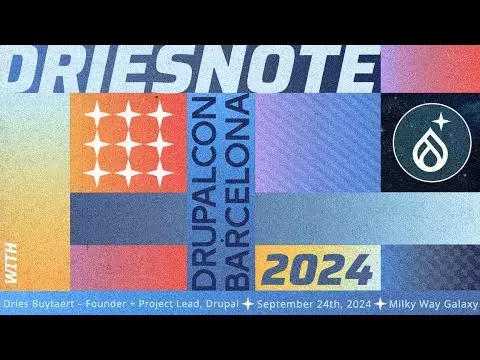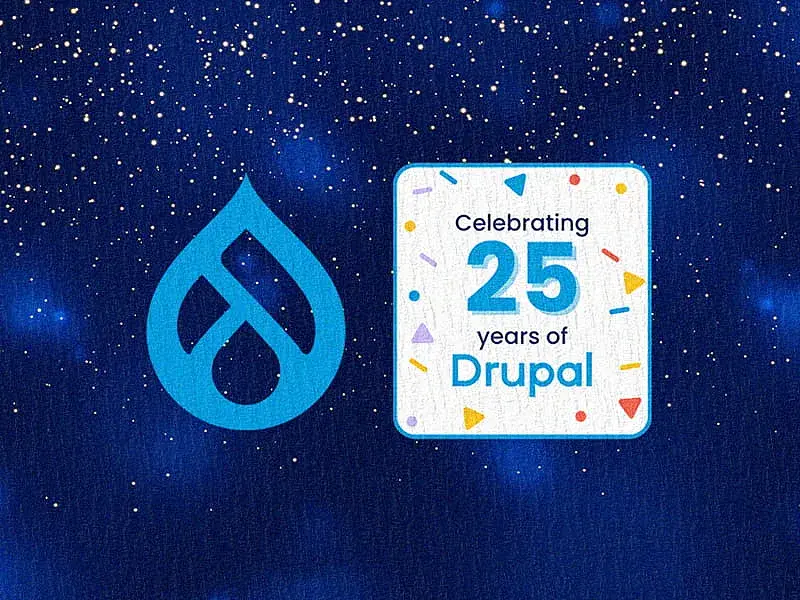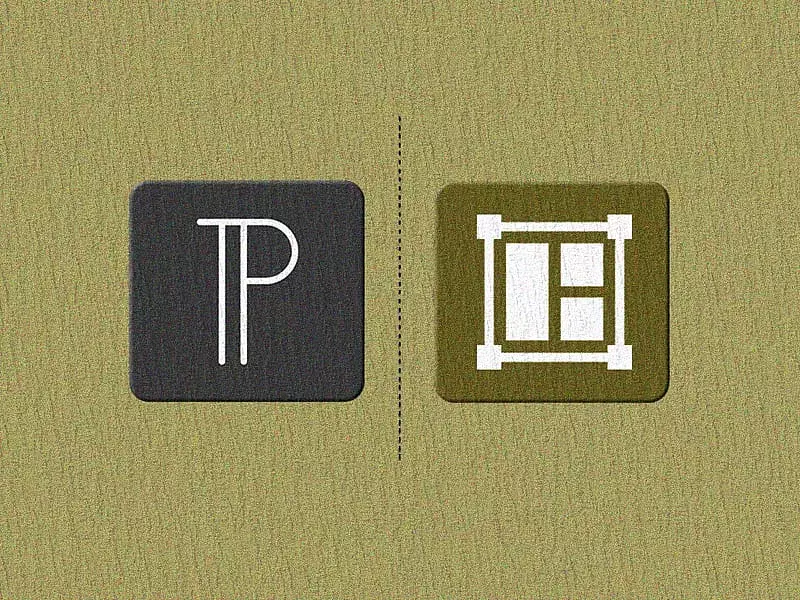Table of contents
- 1. What is the all-new Drupal CMS?
- 2. When does Drupal CMS 1.0 release?
- 3. Why do we need a new Drupal CMS?
- 4. What are the top AI features to expect in the new Drupal CMS 1.0?
- 5. What is the new Experience Builder?
- 6. Who is Drupal CMS meant for?
- 7. How does it help marketers in their daily work life?
- 8. How different is it from Drupal Core?
- 9. Will it affect the current market of enterprise websites?
- 10. How difficult is it to move from Drupal 11 to Drupal CMS?
- 11. Is Drupal CMS meant for existing customers or a new market only?
- 12. Will hosting support be the same for Drupal CMS or will it be different?
- Have you watched DriesNote, DrupalCon Barcelona yet?
- Final thoughts
Drupal is changing. Well, to be honest, it has been evolving since it was founded 23 years ago but this time it is breaking new ground. If you’ve been in the world of web development or marketing or project management for a while, I’m sure you’ve heard of Drupal. But recently, you might have noticed something new popping up in conversations: the all-new “Drupal CMS”. And if you’re scratching your head wondering how this is different from the Drupal you already know, you’re not alone.
On May 6th, 2024 at DrupalCon Portland, Dries, the founder of Drupal, announced the next big initiative - Starshot. While he usually announces new changes and initiatives during his keynotes, this one was historic. This initiative will change the way marketers, content creators, web designers, and other less technical users look at Drupal. It is going to empower them to build simply. And still, create something that encompasses everything Drupal is known for: security, flexibility and SEO.
During his keynote at DrupalCon Barcelona in September 2024, Dries highlighted the progress of the initiative and introduced the product's new name: Drupal CMS.
So if you’re confused between “Startshot” and “Drupal CMS”, let’s clarify again - Starshot is the initiative. Drupal CMS 1.0 is the product. But we know there's more on your mind than just names. We're here to clear things up and give you the answers you need. Keep reading!
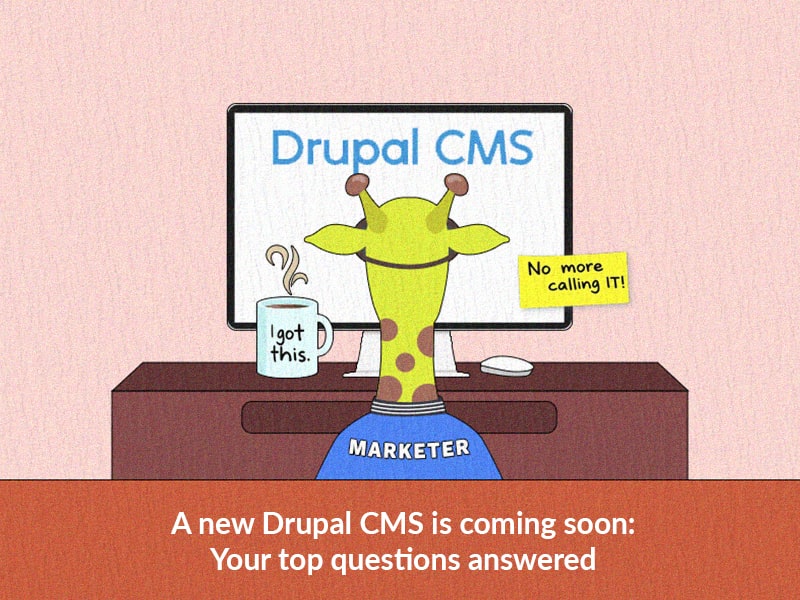
1. What is the all-new Drupal CMS?
Drupal CMS 1.0 will be a specialized version of Drupal Core, designed specifically to be simpler and more user-friendly for non-technical users, especially marketers. While Drupal Core is a powerful, flexible content management framework that requires development expertise to fully leverage, Drupal CMS will come with pre-configured solutions, workflows, and "recipes" that make it easier for marketers to manage content, create campaigns, and use Drupal without needing to dive into the technical side. It’s designed to handle marketing needs while maintaining the robustness of Drupal’s underlying architecture. However, Drupal CMS is not available just yet. The CMS is still in development, with the Drupal Starshot initiative steering its creation.

Screengrab from DriesNote Barcelona 2024 showing ease of installation of Drupal CMS right from your browser
2. When does Drupal CMS 1.0 release?
Drupal CMS 1.0 is scheduled for release on January 15th, 2025 (also Drupal’s 24th birthday!), giving the community and businesses some time to prepare for its launch. The Drupal Starshot initiative has quickly come together in a collaborative effort between core committers, agency partners, volunteers, and the Drupal Association. The rapid pace of innovation and iteration is a key point in the project’s development.
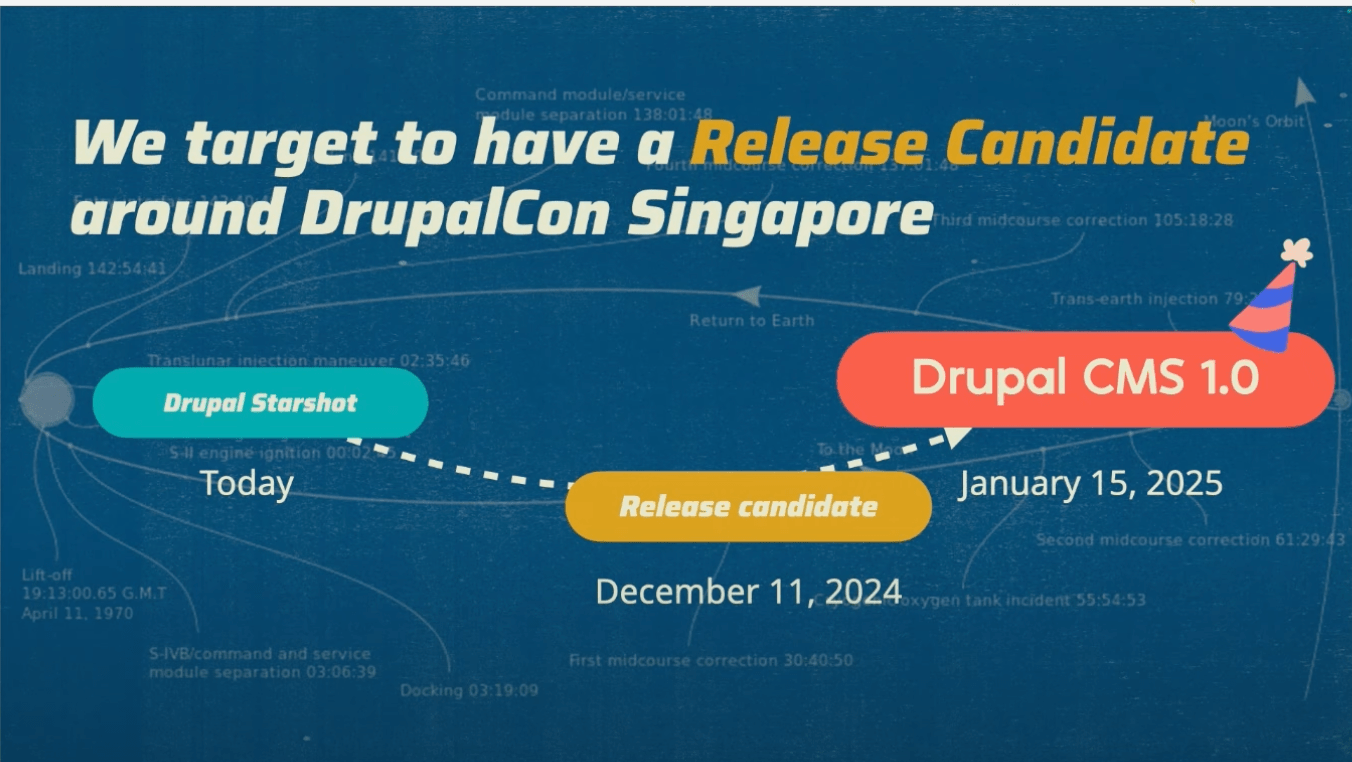
Screengrab from DriesNote Barcelona 2024 showing the release date of Drupal CMS 1.0
3. Why do we need a new Drupal CMS?
While Drupal has always been recognized for its robustness, flexibility, and security, its complexity, steep learning curve, and developer-centric nature led to a dip in popularity, especially among beginners. Drupal CMS aims to solve this by offering a simplified interface, reducing the learning curve, and providing pre-configured solutions for common marketing use cases. This makes it easier for businesses, especially those with marketing teams, to adopt Drupal without the need for extensive development resources. The goal is to make Drupal more accessible, relevant, and appealing to a broader audience. Drupal CMS will also introduce a bunch of AI-assisted tools and features that can enable effortless content management.
4. What are the top AI features to expect in the new Drupal CMS 1.0?
Drupal's new CMS is packed with AI-driven features that will reshape the way marketers work. It introduces AI-assisted content migration, making it easier to bring over content with intelligent importing and mapping. AI-assisted page building takes the guesswork out of design by suggesting layouts and components tailored to your needs. You can even create content types and Views using AI tools! Add to that AI-powered content recommendations, automated tagging, and SEO-friendly content generation, and you’ve got a CMS that works smarter, not harder. It’s like having a personal assistant for your website!
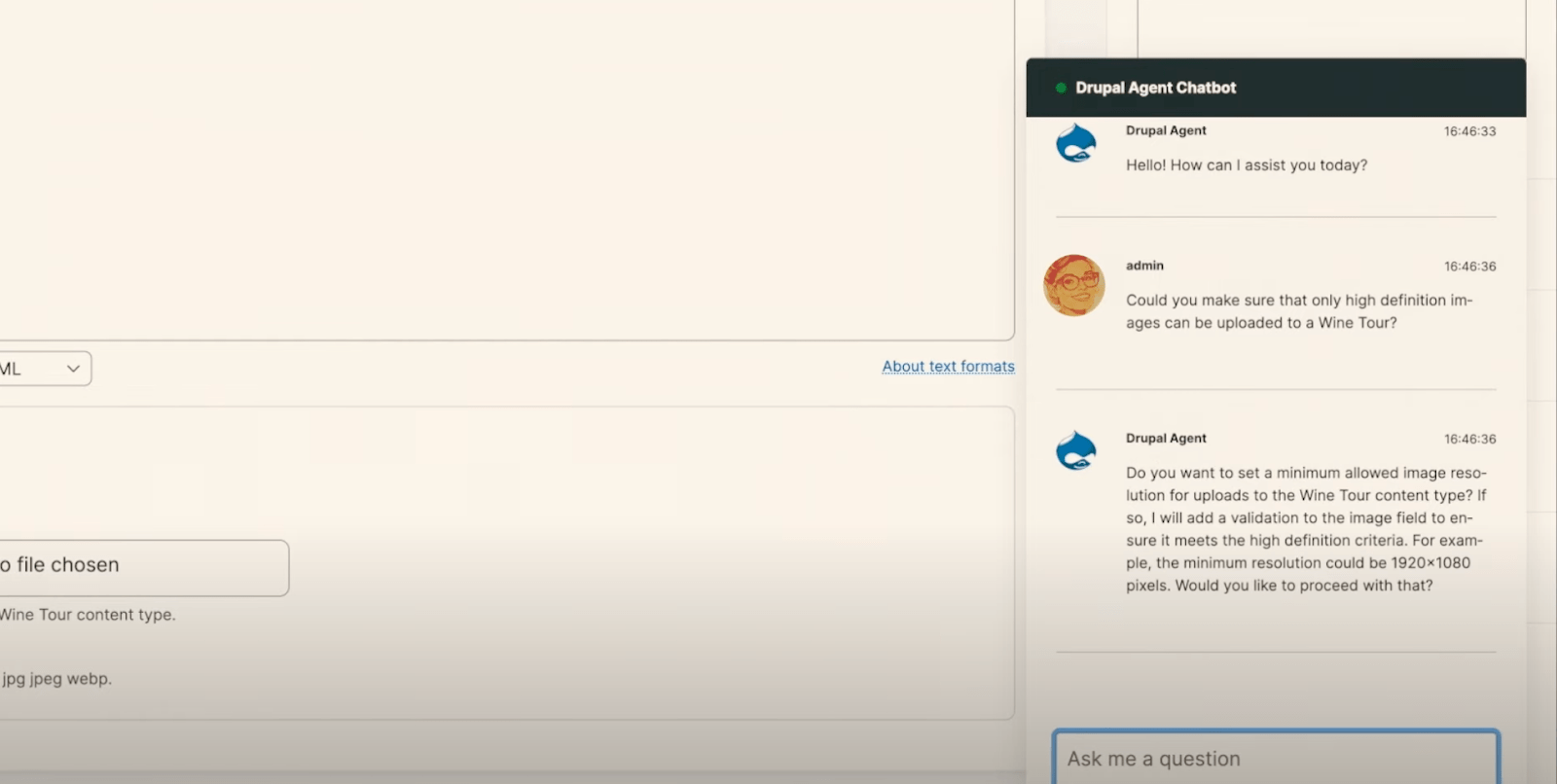
Screengrab from DriesNote Barcelona 2024 where Dries shows a demo of the AI Agent Chatbot in action
5. What is the new Experience Builder?
Experience Builder is a React-based no-code interface that allows users to directly modify the user experience (UX) and user interface (UI) of their websites. This tool will be a part of the new Drupal CMS 1.0 and is going to make site-building faster and more intuitive for content editors and marketers. It includes features like drag-and-drop functionality, styling options, and branding tools without the need for custom code. You can even CTRL+Z any of your mistakes!
The interface is built using Single Directory Components (SDCs), making it highly responsive and familiar to front-end developers. Experience Builder is planned to replace the current Drupal admin UI, modernizing how all Drupal websites are built and managed.
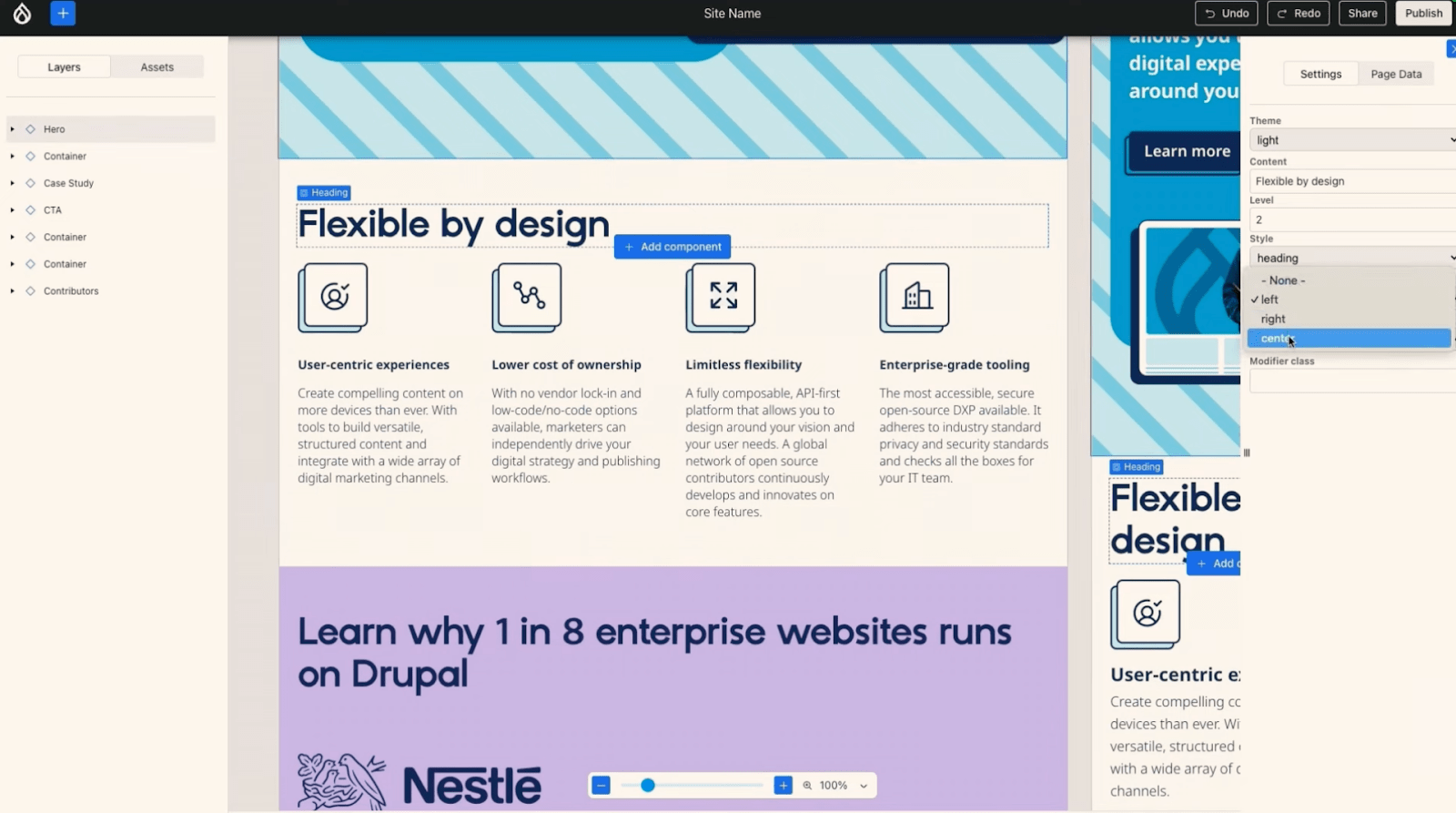
Screengrab from DriesNote Barcelona 2024 showing how you can edit the CSS of any element simply through your UI
6. Who is Drupal CMS meant for?
Drupal CMS is primarily meant for marketers who want a streamlined content management system without needing in-depth technical knowledge. However, it also has value for developers and contributors because it introduces ways to create and manage pre-built solutions (such as "recipes") that developers can further extend. By lowering the barrier to entry for marketers, it helps them leverage the power of Drupal, while still providing developers with the flexibility to build more complex features if needed. It's also meant for businesses or organizations looking for faster, less complex deployments of Drupal.
7. How does it help marketers in their daily work life?
Let’s imagine you’re the marketing manager for a mid-sized company. Your job involves launching campaigns quickly, experimenting with different landing pages, and creating personalized user experiences. But even making simple changes, like tweaking a layout or embedding a new call-to-action, requires you to log tickets with the development team. By the time they prioritize your requests, the window of opportunity has often passed. Now you’re frustrated and find yourself wishing for a platform that could keep up with your fast-paced marketing needs.
Enter Drupal CMS. It brings features that let you take charge without needing to rely on developers. How?
Step 1: Building Pages Effortlessly
Your team announces a new product launch, and you need to create a landing page fast. Instead of opening a support ticket, you log into the Experience Builder, a React-powered drag-and-drop tool. Within minutes, you can arrange pre-built components like hero banners, forms, and image galleries. You don’t need to code or ask anyone for help.
Step 2: Customizing Layouts with AI
Now you want the landing page to look fresh, not like a generic template. Using AI-Assisted Page Building, you get layout suggestions based on your content. The AI even auto-adjusts colors and spacing to fit your brand guidelines.
Step 3: Using Recipes
Drupal CMS provides a ready-made "Product Launch" recipe, a pre-configured solution tailored for such campaigns. This recipe includes event countdowns, email capture forms, and shareable social media links—all set up in a couple of clicks.
The Result: What once took weeks now takes you an afternoon. With the marketer-first approach of Drupal CMS, you can now turn frustration into productivity!
8. How different is it from Drupal Core?
The main difference between Drupal CMS and Drupal Core lies in their target audience and ease of use. Drupal Core is a highly flexible and customizable framework for developers, offering a wide range of options for developers to create bespoke solutions. On the other hand, Drupal CMS is designed for marketers and non-technical users, offering out-of-the-box tools, pre-built "recipes" (pre-configured features), and a simpler interface for content management, marketing, and campaign creation. While Drupal Core requires more effort and Drupal expertise to set up and configure, Drupal CMS provides ready-to-use solutions that reduce the need for custom development and configuration.
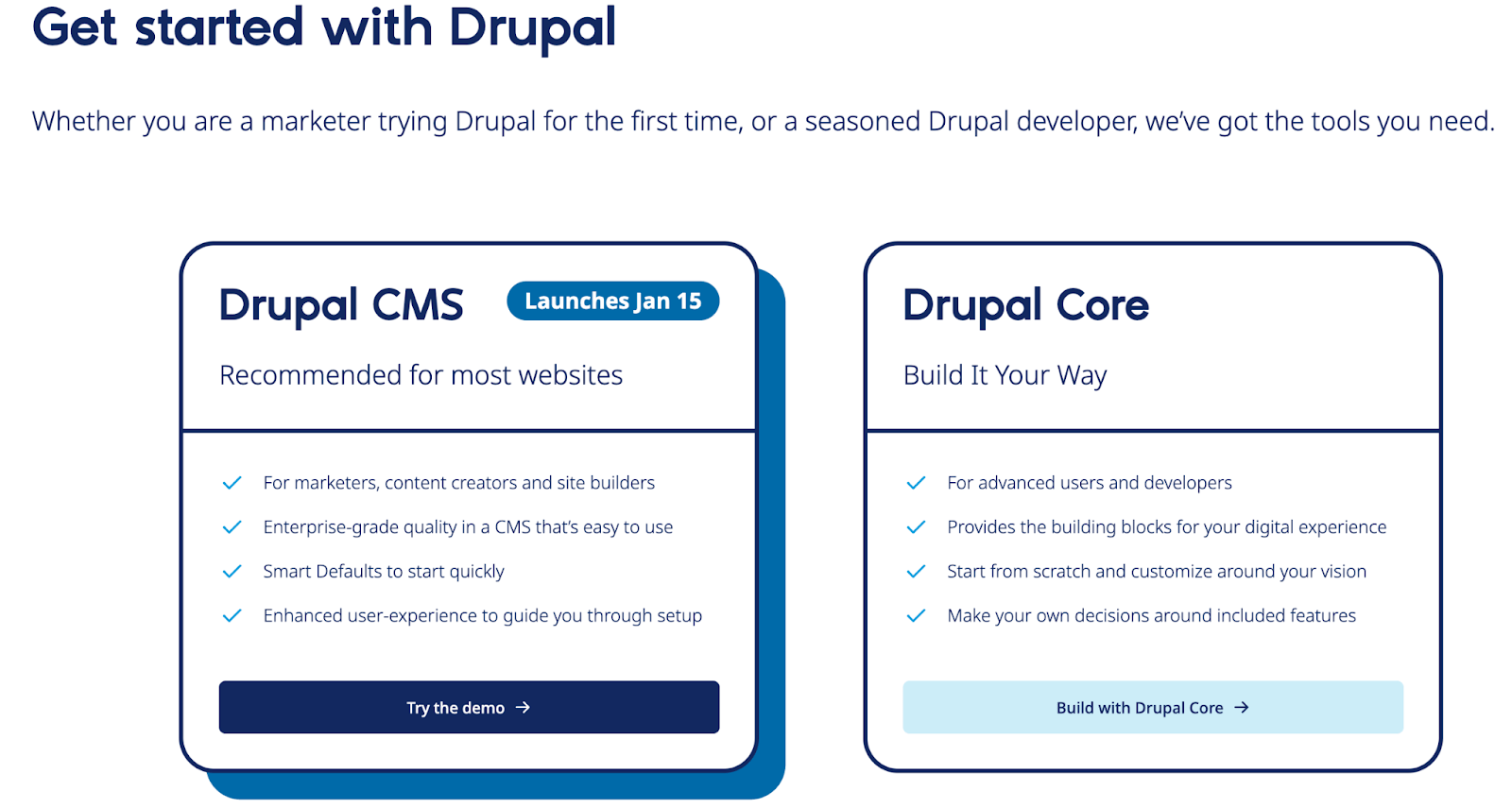
The New Drupal.org (to be launched soon)
9. Will it affect the current market of enterprise websites?
Yes, Drupal CMS could significantly affect the market for enterprise websites, especially for companies that want the power of Drupal but don't have the resources or expertise to deal with its complexity. By simplifying the setup and use of Drupal, Drupal CMS could attract more enterprises that previously shied away from Drupal due to the technical barriers. It also enhances Drupal’s competitiveness against other CMSs by offering a user-friendly experience while still maintaining the flexibility of the Drupal ecosystem. This means Drupal CMS could appeal to enterprises looking for a simpler solution, potentially expanding Drupal’s presence in large-scale corporate environments.
10. How difficult is it to move from Drupal 11 to Drupal CMS?
Migration from Drupal 11 to Drupal CMS should not be overly difficult. Since Drupal CMS 1.0 is built on top of Drupal Core, moving from Drupal 11 to Drupal CMS should mostly involve configuring and activating the pre-built features and "recipes" that come with Drupal CMS, which makes it easier to use but doesn't drastically change the core framework. Drupal 11 users will still have access to their existing modules, content types, and configurations, but they will benefit from simpler, pre-configured features aimed at improving usability, particularly for marketing teams. The AI-assisted tools for content migration will also be of great help in migrating content and mapping it to all the right places.

11. Is Drupal CMS meant for existing customers or a new market only?
Drupal CMS is meant for both existing customers and a new market. For existing Drupal customers, it provides an easier and faster way to adopt new features and simplify marketing tasks without needing to overhaul their existing infrastructure. It opens up Drupal to a new market of users (particularly marketers and business owners) who may have been hesitant to use Drupal due to its complexity. This helps Drupal tap into industries and businesses that were previously underrepresented or overlooked.
12. Will hosting support be the same for Drupal CMS or will it be different?
Hosting support for Drupal CMS will likely be very similar to Drupal Core, as it uses the same underlying architecture. The same hosting environments and requirements used for Drupal Core will likely support Drupal CMS, as the CMS is essentially an enhanced version of Drupal Core with additional pre-configured tools. The only difference may be specific configurations or optimizations made to support Drupal CMS's pre-built features, but in general, the hosting infrastructure will be the same.
Have you watched DriesNote, DrupalCon Barcelona yet?
Okay, this isn’t one of the FAQs but I can’t tell you how much inspiration I draw from this video, especially for this article. Take a look - It’s long but totally worth it:
Final thoughts
Drupal CMS will dramatically change how marketers and developers interact with Drupal. It will improve the speed of deployment, usability, and overall customer satisfaction. As a Drupal development company, we are extremely excited about the future of Drupal and how it is shaping the open web. Our clients are already thrilled about the all-new Drupal CMS 1.0 and how it aligns better with their needs. If you want to know more about it or want to talk to us about how we can help you prep your site for it, contact us today!
